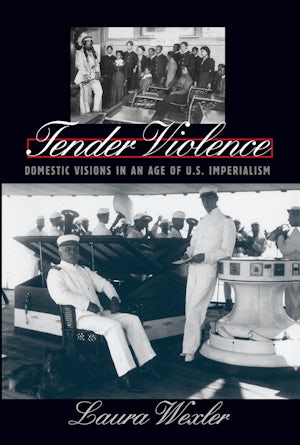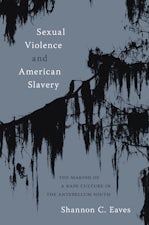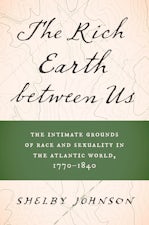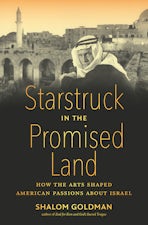Tender Violence
Domestic Visions in an Age of U.S. Imperialism
By Laura Wexler

384 pp., 6.125 x 9.25, 174 halftones, notes, bibl., index
-
Paperback ISBN: 978-0-8078-4883-8
Published: November 2000
Cultural Studies of the United States
Buy this Book
Awards & distinctions
2001 Joan Kelly Memorial Prize, American Historical Association
Wexler examines the work of Frances Benjamin Johnston, Gertrude K In a groundbreaking approach to the study of photography, Wexler raises up these images as "texts" to be analyzed alongside other texts of the period for what they say about the discourses of power. Tender Violence is an important contribution not only to the fields of history of photography and gender studies but also to our growing understanding of U.S. imperialism during this period.
About the Author
Laura Wexler is professor of American studies and women's, gender, and sexuality studies at Yale University.
For more information about Laura Wexler, visit
the
Author
Page.
Reviews
"A politically sophisticated analysis of photographs as portrayal and betrayal. . . . [Reveals] the necessity of theory that goes beyond the discrete deployments of gender, race, class, and ethnicity formulas."--Journal of American History
"Wexler has forged a genuinely new method for the use of photographic images as primary resource material. This book is a true landmark in the field of American studies."--Technology and Culture
"Superb."--Feminist Studies
"In this fascinating study, [Wexler] probes the imperial logic lurking behind the domestic surfaces of over 150 photographs taken in the decades surrounding the turn of the twentieth century. . . . Removing the benign mask of these images by situating them within the discourses of racism, imperialism and eugenics, Wexler offers a groundbreaking account of how some of America's first women photojournalists became complicit with America's imperialistic project."--Women's Review of Books
"This book is a rigorous and outstanding examination of gender as a key contributor to specific visual outcomes. Tender Violence is a most welcome addition to the literature and is highly recommended for upper-division undergraduates, graduate students, faculty, and interested general readers."--Choice
"[Shows] extraordinary scholarly imagination and acumen. . . . Wexler provides 'a means of seeing' photography that is so productive of insight as to almost reach past or out from the putative frames of her study. All those interested in a 'means of seeing' photography, domestic sentiment, imperialism and reform and seeing them as linked will be reading and rereading her wonderful book."--American Quarterly



